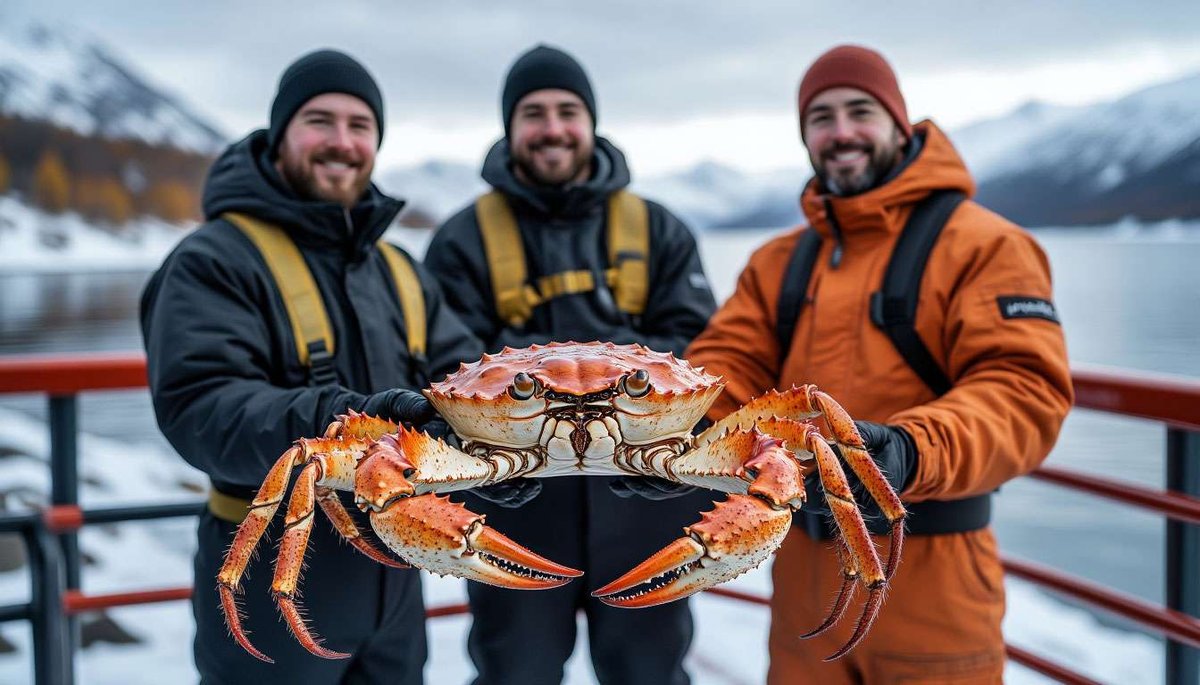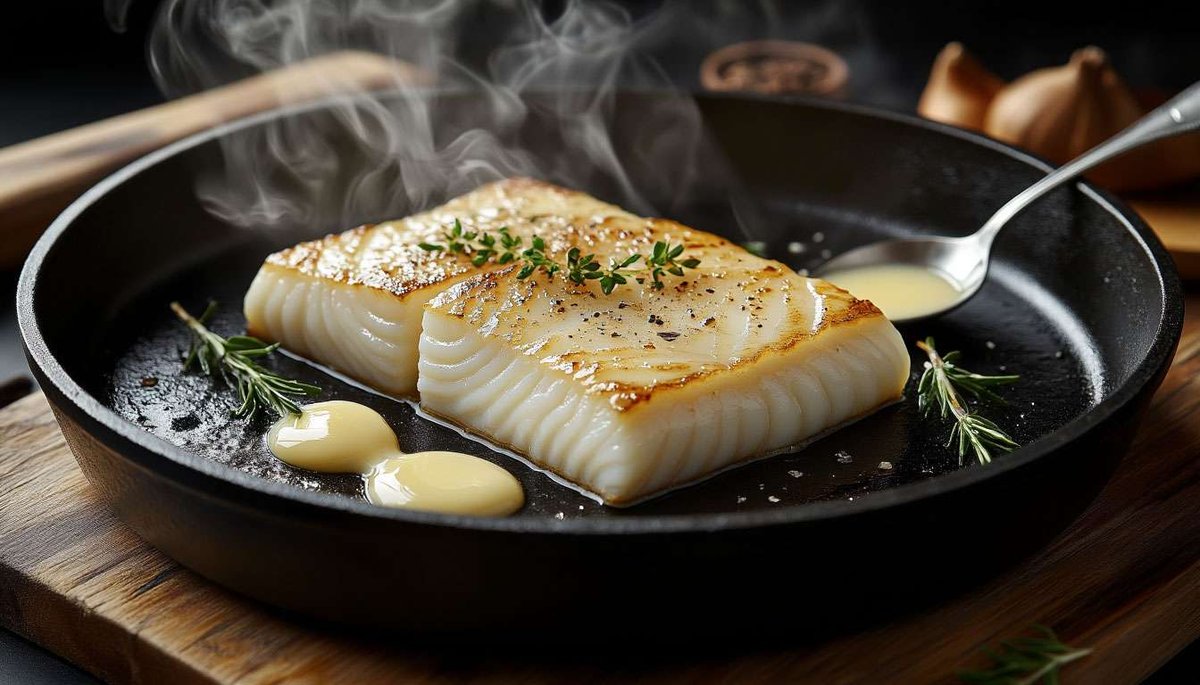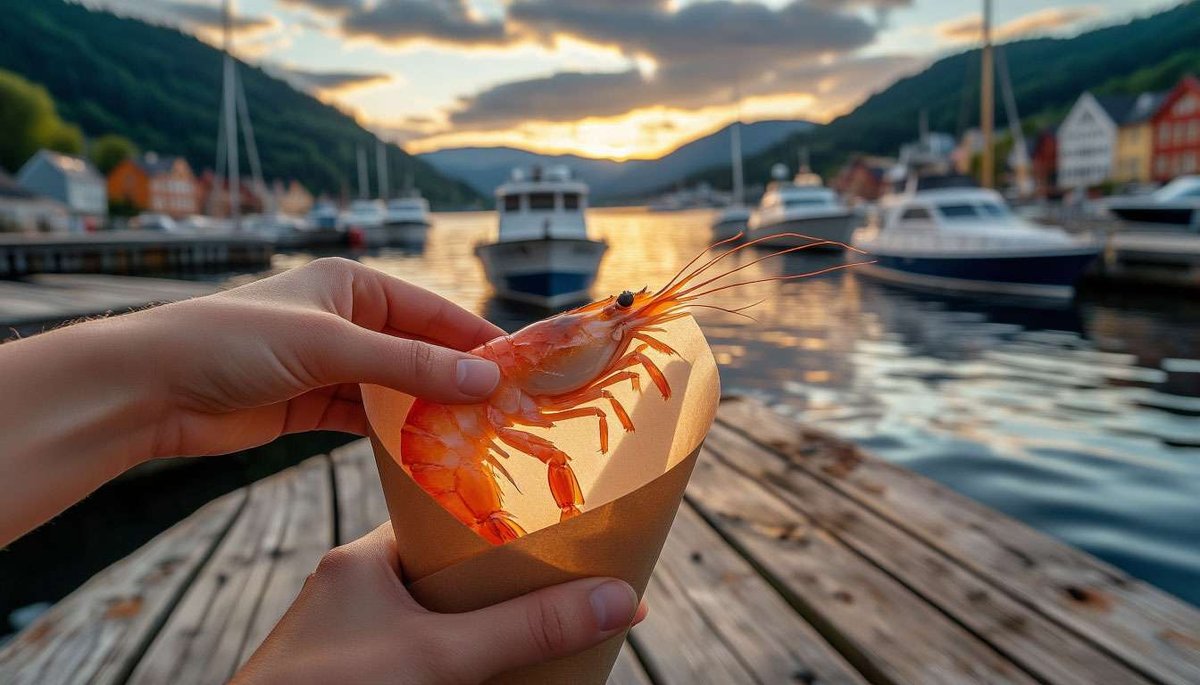Gifts from the Barents Sea: king crab, Skrei, northern shrimp and Norwegian scallops

The cold, oxygen-rich waters of the Norwegian and Barents Seas produce seafood with firm flesh and a clean umami flavour. Kamchatka crab weighing up to 8 kg, winter cod Skrei, sweet and bizarrely small northern shrimp, and buttery scallops — every gourmet will find their culinary trophy here. Six key questions about seasonality, the right places, prices and cooking methods.
What is Kamchatka (king) crab famous for and how can you go on a crab safari?
The giant crab came to the Barents Sea from Russia in the 1960s and settled off the coast of Finnmark. It is caught from October to January, when its shell is softer and its meat is juicier. The King Crab Safari tour (Kirkenes or Honningsvåg) costs around NOK 1,600: you pull up the baskets, and the chef on board cooks the claws in seawater and serves them with lemon and mayonnaise. In a restaurant, a 600 g serving of meat costs ≈ 495 NOK (Fiskekompaniet, Tromsø).
What is Skrei and why is this cod only available in winter?
Skrei is Atlantic cod that migrates from the Barents Sea to Lofoten from December to April to spawn; its flesh is firm, its scales are shiny, and its pectoral fins have sharp teeth — all signs of freshness. Best dishes:
- Skrei loin pan-fried with beurre blanc (Maaemo, Oslo).
- Traditional skreimølje: fillet, liver, roe, potatoes (home cooking in the north).
Price at Coop Mega supermarket (January 2025): 219 NOK/kg fillet.

Why are northern shrimp considered "sweet" and where can you try them?
Arctic Reker grow more slowly in icy water, accumulating glycogen, which gives them their sweet taste. The season is May–September, with July being the peak. Buy a 250 g paper cone at the Bergen Fisketorget fish market (75 NOK), sit on the pier, peel them with your hands, dip them in mayonnaise with dill — this is real fjord fast food.

Scallops from the Stavanger Fjord: how to tell if they are super fresh?
Scallops should smell like the sea, not iodine; the muscle should be white, unblemished and slightly shiny. Divers catch them all year round, but they taste best from November to March, when the water is coldest. The Renaa restaurant (Stavanger) serves carpaccio of live scallops with salt crystals and pine needle oil. Take some home in a vacuum pack for NOK 390/kg at the Hall Toll market.
How to make a quick scallop and shrimp soup (serves 4)?
- Fry 1 tablespoon of oil + 1 tablespoon of cream, add chopped leeks and simmer for 5 minutes.
- Pour in 600 ml of fish stock and 150 ml of 20% cream and bring to a gentle boil.
- Add 8 scallops and 200 g peeled prawns and cook for 3 minutes.
- Season with dill, lemon juice and a pinch of pepper. Serve with flatbread.
Seasonality and price table (updated 2025)
| Delicacy | Best season | Market price | Restaurant special |
|---|---|---|---|
| King crab | Oct–Jan | 450–600 NOK/kg claws | "King Crab bucket" Fisketorget Bergen – 495 NOK |
| Skrei | Jan–Apr | 200–240 NOK/kg fillet | Skrei porchetta To Kokker – 345 NOK |
| Shrimps Reker | May–Sept | 65–80 NOK/250 g | Open-face shrimp Kaffistova Oslo – 175 NOK |
| Scallops | November–March | 350–420 NOK/kg of muscle | Carpaccio Renaa Stavanger – 295 NOK |
From the succulent claws of king crab cooked right on deck to the tender Skrei fillet that falls apart into glassy flakes, Norwegian seafood is a gastronomic adventure accompanied by the sound of seagulls and the surf. Plan your trip according to the seasons: winter for cod, spring for shrimp, summer for markets, winter-spring for scallops and crab. Write down the route "crab safari + Skrei dinner + fish market", stock up on airtight bags for souvenir fillets and let the northern sea reveal itself on your plate.





2 comments
Log in to leave a comment